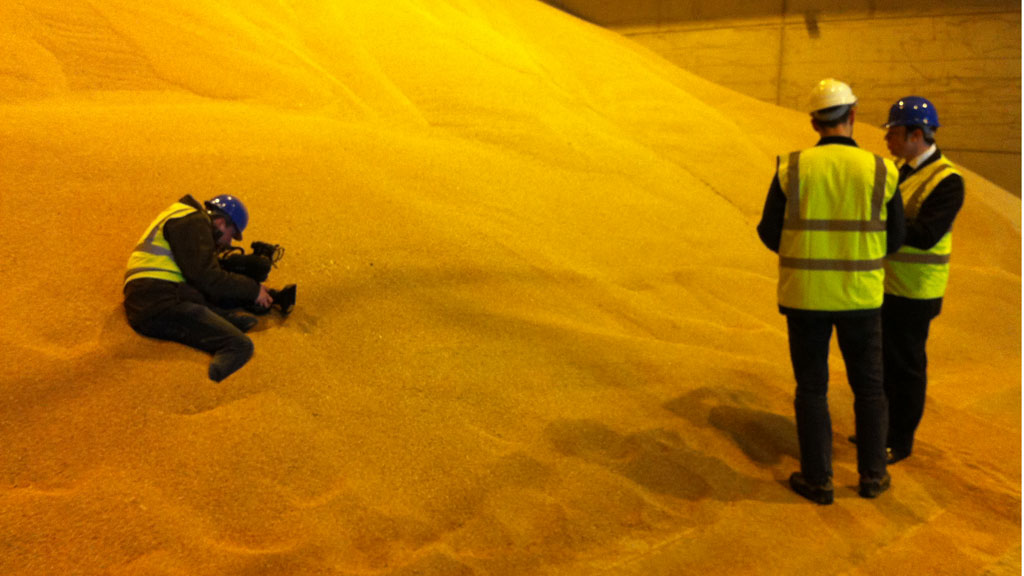Bad weather threatens wheat harvest
The UK wheat harvest is set to be a third lower than normal after a wet winter and freezing start to the year, putting further financial pressure on farmers and potentially driving up food prices.
Many fields across the UK were not planted in autumn because soil was still waterlogged after last year’s record rainfall, writes Channel 4 News Science Editor Tom Clarke. And now the absence of spring has meant what little crop was sown has failed to grow well.
“It’s the worst start to a year that I can remember, or my father can remember,” says Will Wastling, who manages 2000 acres in the East Riding of Yorkshire.
On his well-drained soil near the Humber estuary, they did manage to sow crops of winter wheat, but it has failed to grow. “If anything it’s gone backwards,” says Mr Wastlng. “The plants are smaller than they were in November.”
Stripped bare
It is the same picture on a neighbouring field of oil seed rape. By April the rape should be waist high and about to break out in characteristic yellow flowers. But the plants are just a few inches high and have been stripped bare by pigeons left hungry in a freezing spring.
Mr Wastling has chosen to abandon most of his winter wheat crop and re-sow the fields with spring wheat. It means much lower yields, but at least he will have some wheat to sell come harvest time.
It’s the worst start to a year that I can remember, or my father can remember. Will Wastling
It is a similar picture nationwide and already traders are predicting a spectacularly bad year for UK wheat production. In a typical year the UK produces about 15 million tonnes of wheat. Last year’s dismal summer saw yields down to 13 million tonnes, but this year could be even worse.

According to grain trader Jonathan Lane, of Gleadells in Lincolnshire (pictured above with Tom Clarke), harvests could be as low as 10 million tonnes of poor quality grain.
As UK sheep farmers come to terms with losses due to the cold spring, arable farmers could be facing a “perfect storm,” warns Mr Lane. Global wheat prices are forecast to be low this year, pushing down the value of what little crop farmers manage to harvest.
“But there’s still a lot of weather between now and harvest time,” he says. If the world price of wheat does stay high it will be a relief to farmers, but could mean sharp rises in food prices for consumers because of the poor harvests.
-
Latest news
-
Tim Booth of the band James’ on agism in music, topping the charts and AI6m

-
As India goes to the polls in the world’s largest election – what do British-Indians think?6m

-
Tees Valley: Meet the candidates in one of the biggest contests coming up in May’s local elections4m

-
Keir Starmer says public sector reform will be a struggle7m

-
Nicola Sturgeon’s husband Peter Murrell charged with embezzlement of funds from SNP1m

-




